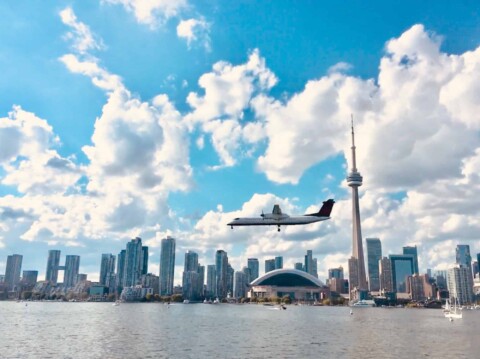10 Essential Travel Tips for an Unforgettable Adventure
Traveling is one of life’s greatest joys—whether you’re escaping for a weekend getaway or embarking on a months-long journey, the thrill of exploring new places is unmatched. But to make the most of your trip, a little preparation goes a long way.
From packing hacks to cultural etiquette, these 10 essential travel tips will help you navigate your adventures smoothly, stay safe, and create unforgettable memories.
1. Plan Ahead (But Not Too Much)
A well-planned trip reduces stress, but over-planning can suck the fun out of spontaneity. Here’s how to strike the right balance:
- Research your destination – Look up must-see attractions, local events, and hidden gems. Websites like Lonely Planet and TripAdvisor offer great insights.
- Book essentials in advance – Flights and accommodations are often cheaper when booked early. Use tools like Skyscanner or Booking.com for deals.
- Leave room for flexibility – Some of the best travel moments happen unplanned. Keep a day or two open for unexpected discoveries.
Pro tip: Download offline maps (Google Maps allows this) in case you lose internet access.
2. Pack Light (Your Back Will Thank You)
Overpacking is a rookie mistake. A heavy suitcase can slow you down, cost extra in baggage fees, and make moving around a hassle. Here’s how to pack smart:
- Use the “5-4-3-2-1” rule:
- 5 tops
- 4 bottoms
- 3 pairs of shoes (max!)
- 2 dresses (if applicable)
- 1 jacket
- Roll, don’t fold – Rolling clothes saves space and minimizes wrinkles.
- Bring travel-sized toiletries – Or buy them at your destination.
- Pack a reusable water bottle – Saves money and reduces plastic waste.
Check out Packing Pro for a handy packing list app.
3. Learn Basic Local Phrases
Even a few words in the local language can make a big difference. It shows respect and helps you connect with people.
- Essential phrases to learn:
- Hello / Goodbye
- Thank you
- How much?
- Where is the bathroom?
- Help! (Just in case)
Apps like Duolingo or Google Translate (which works offline) can be lifesavers.
4. Stay Flexible (Because Things Will Go Wrong)
Flights get delayed. Weather changes. Attractions close unexpectedly. Instead of stressing, embrace the adventure!
- Have a backup plan – If a tour gets canceled, know what else you can do.
- Travel insurance is a must – Companies like World Nomads cover trip delays, lost luggage, and medical emergencies.
- Sometimes, getting lost leads to the best stories – Wander without a plan occasionally.
5. Prioritize Safety
No matter where you go, safety should always come first.
- Keep copies of important documents – Store digital copies of your passport, visa, and travel insurance in your email or cloud storage.
- Know emergency numbers – In Europe, it’s 112; in the U.S., it’s 911. Check your destination’s emergency contacts.
- Be aware of scams – Research common tourist scams in your destination (e.g., fake taxis, pickpocketing).
- Use a money belt or hidden pouch – Keeps cash and cards safe from pickpockets.
6. Respect Local Customs & Culture
Being a mindful traveler earns you respect and enriches your experience.
- Dress appropriately – Some religious sites require covered shoulders or knees.
- Ask before taking photos – Some cultures find it offensive.
- Learn dining etiquette – In Japan, don’t stick chopsticks upright in rice; in India, eat with your right hand.
Sites like Culture Trip offer great cultural guides.
7. Go Beyond Tourist Traps
The real magic happens when you step off the beaten path.
- Eat where locals eat – Avoid restaurants with giant “Tourist Menu” signs.
- Visit local markets – They’re full of authentic flavors and crafts.
- Take a cooking class or homestay – Platforms like EatWith connect travelers with local hosts.
8. Stay Connected (But Not Too Much)
While disconnecting can be refreshing, staying connected is practical.
- Get a local SIM card – Often cheaper than international roaming.
- Use WhatsApp or Skype – Free calls over Wi-Fi save money.
- But… limit screen time – Put the phone down and soak in the moment!
9. Embrace the Unexpected
Some of the best travel stories start with, “This wasn’t part of the plan!”
- Say yes to new experiences – Try that weird street food, join a local festival, or take a spontaneous road trip.
- Talk to strangers – Locals often know the best spots.
- Keep a travel journal – Jot down funny, scary, or heartwarming moments.
10. Travel Responsibly
Tourism impacts the environment and local communities—make sure it’s a positive one.
- Reduce plastic waste – Carry a reusable bottle and shopping bag.
- Support local businesses – Eat at family-run restaurants, buy handmade souvenirs.
- Respect wildlife – Avoid unethical animal encounters (e.g., riding elephants).
Check Sustainable Travel International for eco-friendly travel tips.
Final Thoughts
Travel is about discovery, growth, and connection. With these 10 essential tips, you’ll be ready to explore the world confidently, safely, and joyfully.
Now, where’s your next adventure taking you? 🌍✈️








